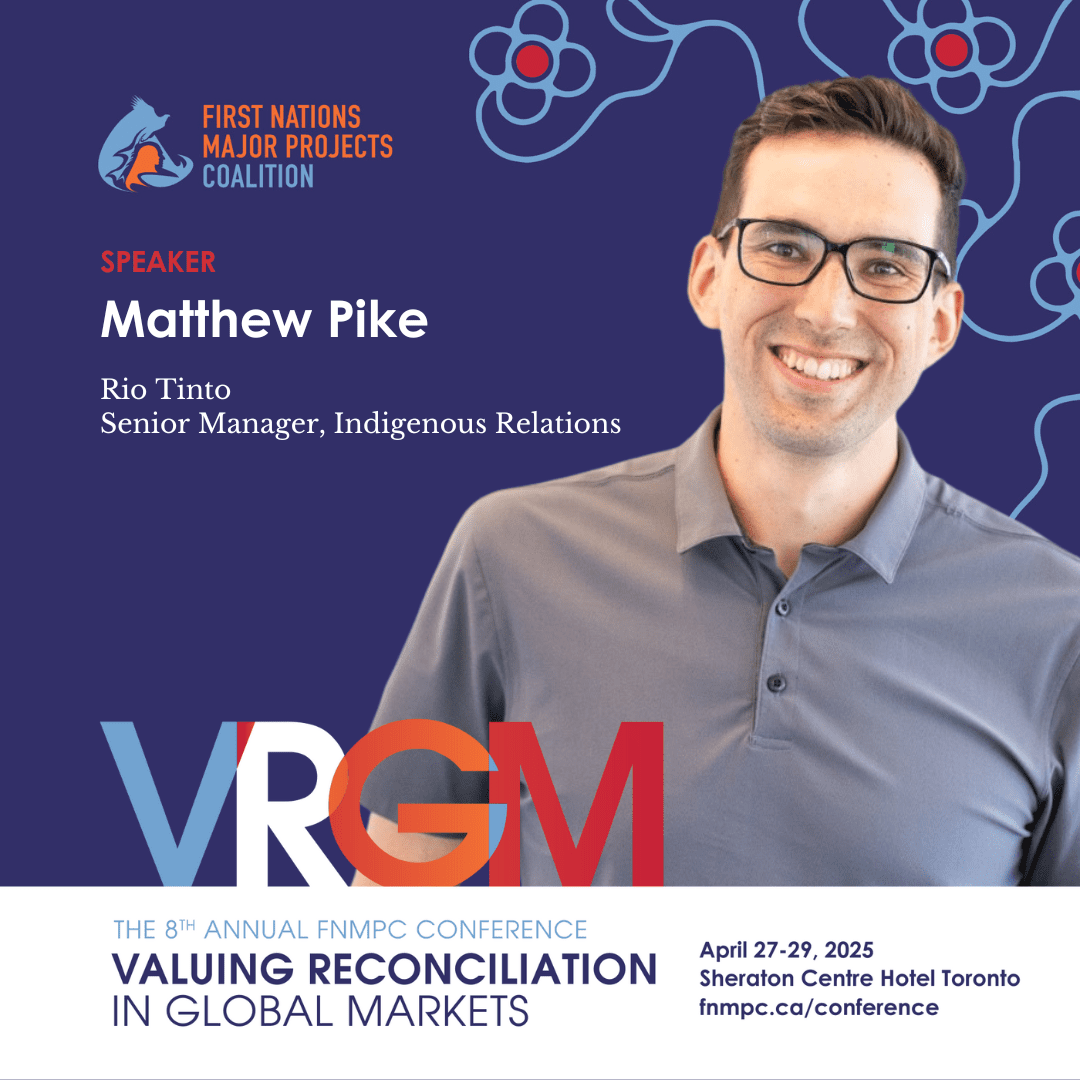
As the world’s second largest metals and mining corporation Rio Tinto’s operations are integral to the global critical mineral supply chain. Specifically in the Canadian landscape, First Nations are essential players in these operations, accessing global markets by unlocking long-term business stability and revenue predictability, improved access to investment capital, and enhanced regulatory compliance and risk mitigation.
As a Senior Manager of Indigenous Relations for North America at Rio Tinto, Matthew Pike has a deep understanding of these benefits firsthand through his experiences building mutual partnerships with First Nations on major projects.
This April in Toronto, Mr. Pike will join fellow industry leaders at the 8th Annual FNMPC Conference: Valuing Reconciliation in Global Markets.
In anticipation of the upcoming conference, Mr. Pike shares a few insights on how the mining industry’s perspective on Indigenous partnerships has shifted to deliver mutual benefit.
Question: From your perspective, how are Indigenous nations able to help organizations like yours strategize to meet the demands of a shifting market?
I feel clearly outlining your community’s goals and aspirations would be a huge benefit to the industry. This may seem obvious but clearly understanding the community’s short and long-term aspirations would be a huge benefit to all.
Question: Given the current landscape in mining, how are the conversations/engagements evolving with respect to Indigenous partnerships in both the short and long term?
I feel the conversations have changed from “should we engage?” to “how do we best engage/partner” with Indigenous communities. We are more focused on the best way to partner, whether that be through a benefit-sharing agreement, through equity, a combination of both, or something different altogether. When I hear conversations about speeding up project approvals in Canada, the companies that currently have respectful and mutually beneficial relationships with Indigenous Peoples will be the winners.
Question: What are you most looking forward to at the 8th Annual FNMPC Conference?
Since attending my first FNMPC conference last year, I made this event a “non-negotiable” to attend. Last year’s conference was the best conference I have ever been to, so I have high expectations for this year. I am once again looking forward to a world-class speaker lineup, along with reconnecting with the high calibre talent in this space. With the impressive program and the organizing team in place, I am confident they will have a tremendously successful event once again this year.
Register now and join Matthew at #FNMPC2025.